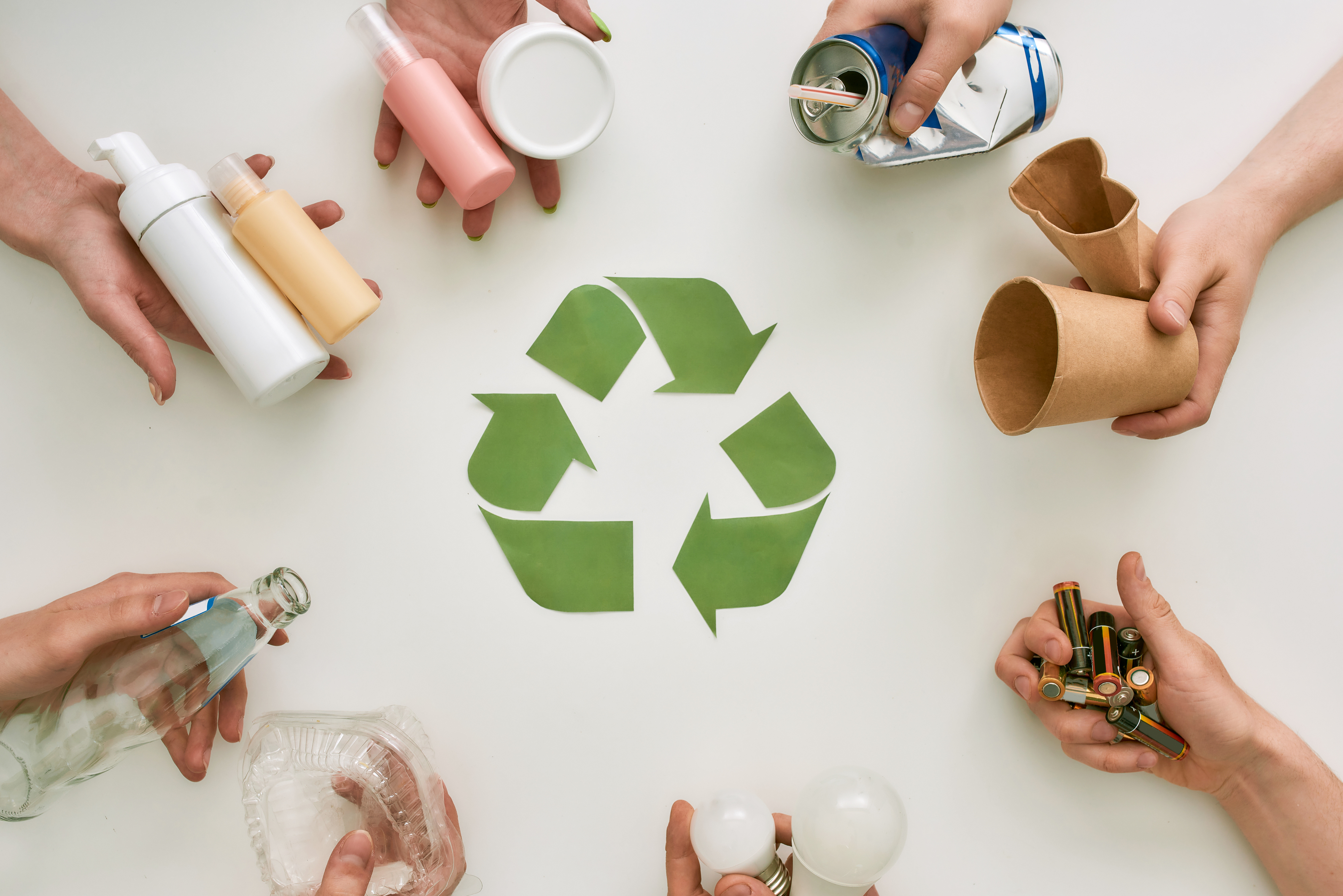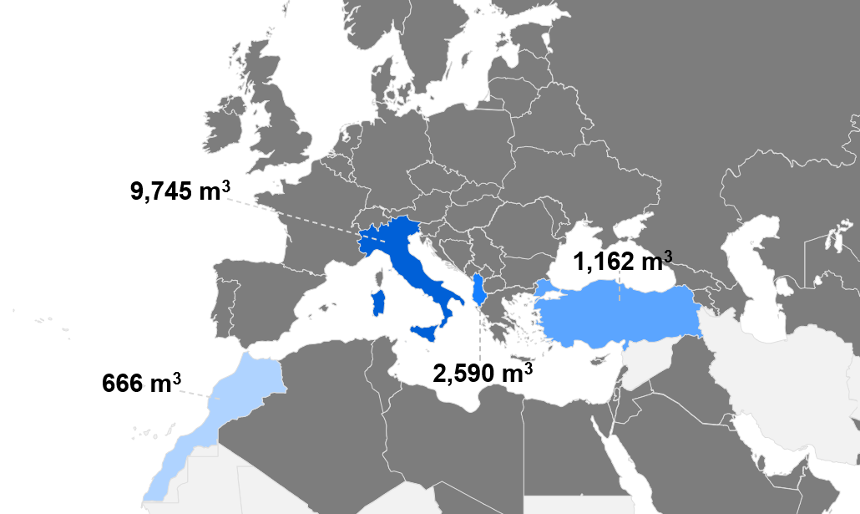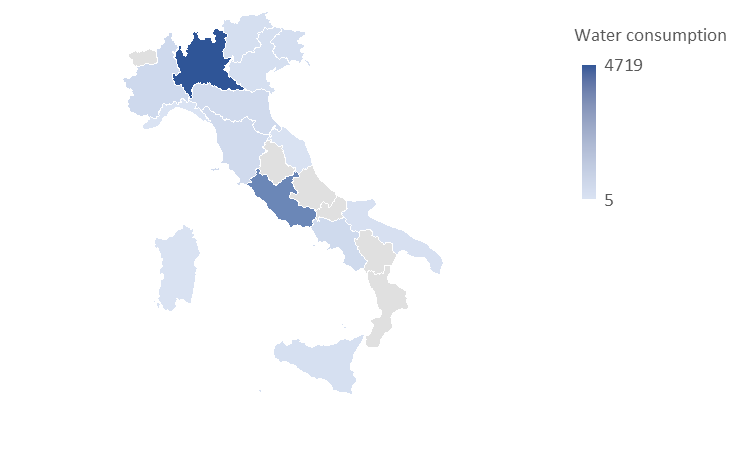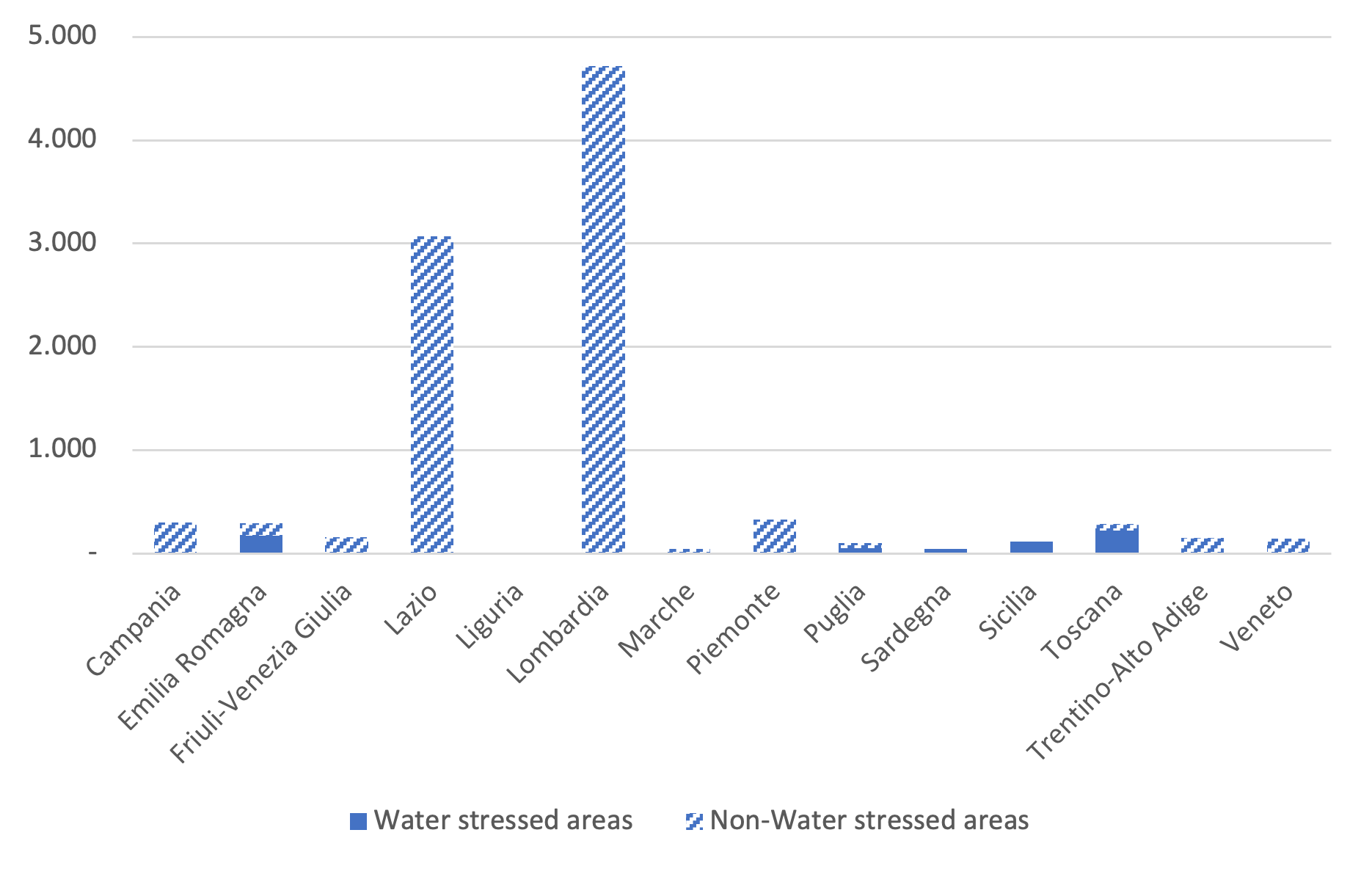Environment
Sisal recognizes climate change as one of the most urgent environmental challenges and considers its mitigation a central element of its sustainability strategy. In a global context where environmental sustainability represents a strategic priority, Sisal actively commits to contributing to the ecological transition through concrete and measurable initiatives.
Environmental impact
Sisal’s approach to managing environmental impacts is based on the principles of prevention, protection, information, and participation, recognizing the mitigation and adaptation strategy to climate change as a strategic element of resilience and protection of natural capital.
Our commitment is developed in alignment with that of Flutter, whose GHG emissions reduction target was approved by the Science Based Targets initiative (SBTi) in May 2024, confirming a solid decarbonization pathway based on scientific evidence.
| 100% of electricity from renewable sources certified by Guarantees of Origin and Energy Attribute Certificates. This has allowed the avoidance of 4,219 tons of CO2 equivalent. | -3% GHG emissions (compared to 2023) |
| -11% energy consumption through LED lighting (compared to 2022) | 99% of materials recovered within responsible waste management |

GHG emissions and energy consumption
In 2023 and 2024, we further strengthened our methodologies for analyzing and measuring the reporting of our environmental performance, with the aim of expanding and consolidating the inventory of GHG emissions resulting from our activities. From the analysis results, we identified the most relevant scopes and priority intervention areas, in a continuous improvement process involving the entire Sisal value chain—from internal processes to points of sale and suppliers of products and services.
In addition to direct emissions generated within the company’s boundary (Scope 1) and those associated with electricity consumption (Scope 2), we reported emissions generated along the value chain (Scope 3). The most significant Scope 3 emissions come from the energy consumption of points of sale not directly managed by Sisal and from the purchase of goods and services. For this reason, we actively engage our partners and suppliers, upstream and downstream, to minimize our environmental impact. Emissions calculations are carried out according to the principles of the GHG Protocol Corporate Standard, applying specific emission factors by geographic area and activity.
Our Journey Toward Net Zero: Main Areas of Intervention
- We implement environmental and energy management systems (ISO 14001 and ISO 50001) to improve monitoring and energy management across our sites.
- We have introduced various measures to reduce the environmental impacts of the buildings hosting our activities, including the installation of more efficient heating and air conditioning systems and replacing incandescent bulbs with LEDs.
- Since 2021, all our offices and stores in Italy use exclusively electricity from renewable sources, certified through Guarantees of Origin (GO) and Energy Attribute Certificates (EACs). This choice has avoided the emission of 4,219 tons of CO2 equivalent.
- Two new photovoltaic plants for self-production of electricity, at the Milan headquarters and a retail point in Florence, will be operational by 2025.
- Sisal uses Green Data Centers to ensure reliability for all corporate IT needs while achieving high energy efficiency.
- In 2024, we introduced a “green” clause in contracts for indirectly managed Points of Sale. Partners must commit to subscribing to an electricity supply contract from renewable sources. To date, over 2,000 points of sale have signed the green clause.
- In November 2023, we signed a partnership with one of Italy’s leading energy providers to offer our retailers the opportunity to activate electricity supply contracts from renewable sources at advantageous rates, as well as the installation of photovoltaic panels both at points of sale and private residences.
- In 2025, in Milan on Corso San Gottardo, a new concept space for gaming, dining, and entertainment—“Wincity Green”—was launched, entirely designed according to integrated sustainability criteria, adopting eco-friendly solutions to reduce energy consumption, waste production, and natural resource use.
- We are transitioning the company fleet towards more sustainable mobility, with 100% hybrid and electric models, the use of biofuels to power internal combustion vehicles still in use, and providing eco-driving courses for technical and commercial staff.
- We use biofuels (e.g., HVO45) for diesel vehicles still present in the company fleet.
- We have planned to deliver an eco-driving course in 2025 for technical and commercial personnel who have company cars.
- We have implemented an ESG checklist during the supplier prequalification phase and included environmental requirements in tenders, to select suppliers with adequate maturity on sustainability issues, focusing on the categories with the highest purchase volumes and environmental impacts.
- Sisal has contracted logistics suppliers to send monthly reports on CO2 equivalent emissions to improve GHG emissions calculations, reducing reliance on a “spend-based” approach.
- We optimized the use of thermal paper by reducing the size of the QR code on SuperEnalotto receipts, shortening the average length of each receipt by 1.3 cm, saving a total of 6.78 million meters of thermal paper per year. This has helped avoid producing 66 tons of CO2e. The initiative is active across the entire network since 2025 and will be extended to other games and international markets.
- Sisal manages an integrated remote assistance system based on real-time monitoring and remote diagnosis, minimizing on-site interventions, improving operational and environmental efficiency. Support is provided by a Contact Center and a 24/7 chatbot, reducing downtime and optimizing resource use. This has helped avoid producing 239 tons of CO2 equivalent in 2024.
- Since 2022, we measure emissions produced by the Sisal.it gaming platform and offset them through certified projects. In 2024, we repeated the measurement and offset the emissions with the SunCulture project in Meru, Kenya, Africa, which promotes solar irrigation among small farmers, reducing CO2 equivalent emissions by using renewable energy instead of fuel pumps, while improving climate resilience and water access.
- We are conducting a project to improve energy efficiency and optimize the energy consumption of the Sisal.it platform.
- We engage our workforce through information and awareness campaigns on the environmental impact of the company and individuals.
- In 2023, we launched a project with the startup ReLearn to improve waste sorting through smart sensors that monitor waste quantity and quality. The initiative, already active in the Milan and Rome offices, was renewed for 2024 and will be extended to two more offices in 2025. The collaboration with ReLearn has achieved a correct sorting rate of 60%.
- We continuously strengthen the reporting models underlying our carbon inventory, also involving suppliers and partners.

Materials and Waste Management
Responsible consumption of materials and proper waste management, with particular attention to the life cycle of waste from electrical and electronic equipment (WEEE), are key aspects in managing our environmental impacts.
Regarding gaming cards and receipts, we use paper suppliers certified by the Forest Stewardship Council® (FSC), a certification that ensures the paper comes from a forest and supply chain managed responsibly, preserving biodiversity, productivity, and ecological processes.
To reduce paper consumption, we have introduced paperless solutions and use recycled and renewable materials. We act on company culture by promoting responsible behaviors among colleagues in printer use and paper recycling, and we apply sustainability criteria when selecting suppliers.
Through internal company workshops and those of some external partners, we repair electronic equipment to extend their useful life, reduce waste production and associated emissions, while also gaining economic benefits, in line with circular economy principles.
In 2025, we launched an exploratory project (Proof of Concept – PoC) aimed at assessing the technical and commercial feasibility of solutions proposed by the startup SMUSH materials to replace expanded polystyrene packaging used in the logistics of assistance and maintenance activities for gaming terminals. SMUSH is an innovative startup in the biomaterials sector, focusing on producing sustainable industrial packaging. Founded by a group of researchers and entrepreneurs, the company has developed a revolutionary technology that uses fungal mycelium—the root network—to transform agricultural by-products and waste into compostable materials.
- total withdrawal volumes by country
- the split between consumption in Water-Stressed and Non-Water-Stressed areas
- detailed water consumption by region in Italy
- the related sources of water supply
| Country | Water consumption | Source |
|---|---|---|
| Italy | 9.745 | Public water network |
| Albania | 2.590 | Public water network |
| Turkey | 1.162 | Public water network |
| Marocco | 666 | Public water network |

| Country | Water-Stressed Areas | Non-Water-Stressed Areas | Source |
|---|---|---|---|
| Italy | 599 | 9.146 | Public water network |
| Albania | 2.590 | - | Public water network |
| Turkey | 1.162 | - | Public water network |
| Marocco | 666 | - | Public water network |


| Region | Water-Stressed areas | Non-Water-Stressed areas | Total | Source |
|---|---|---|---|---|
| Campania | - | 297 | 297 | Public water network |
| Emilia-Romagna | 172 | 122 | 294 | Public water network |
| Friuli-Venezia Giulia | - | 157 | 157 | Public water network |
| Lazio | - | 3.071 | 3.071 | Public water network |
| Liguria | - | 5 | 5 | Public water network |
| Lombardia | - | 4.719 | 4.719 | Public water network |
| Marche | - | 41 | 41 | Public water network |
| Piemonte | - | 331 | 331 | Public water network |
| Puglia | 53 | 46 | 99 | Public water network |
| Sardegna | 41 | - | 41 | Public water network |
| Sicilia | 111 | - | 111 | Public water network |
| Toscana | 222 | 66 | 288 | Public water network |
| Trentino-Alto Adige | - | 152 | 152 | Public water network |
| Veneto | - | 142 | 142 | Public water network |


Environmental Policy and Management Systems
Our commitment to the environment and the promotion of energy efficiency is defined in the Health, Safety, Environment, and Energy Policy. The implementation of this Policy, together with the adoption of environmental and energy management systems in accordance with ISO 14001 and 50001 standards, supports the achievement of strategic objectives, including the reduction of emissions and environmental impacts, risk management, staff engagement, and continuous process improvement.

